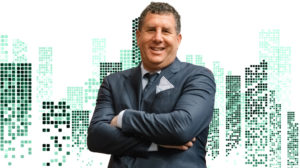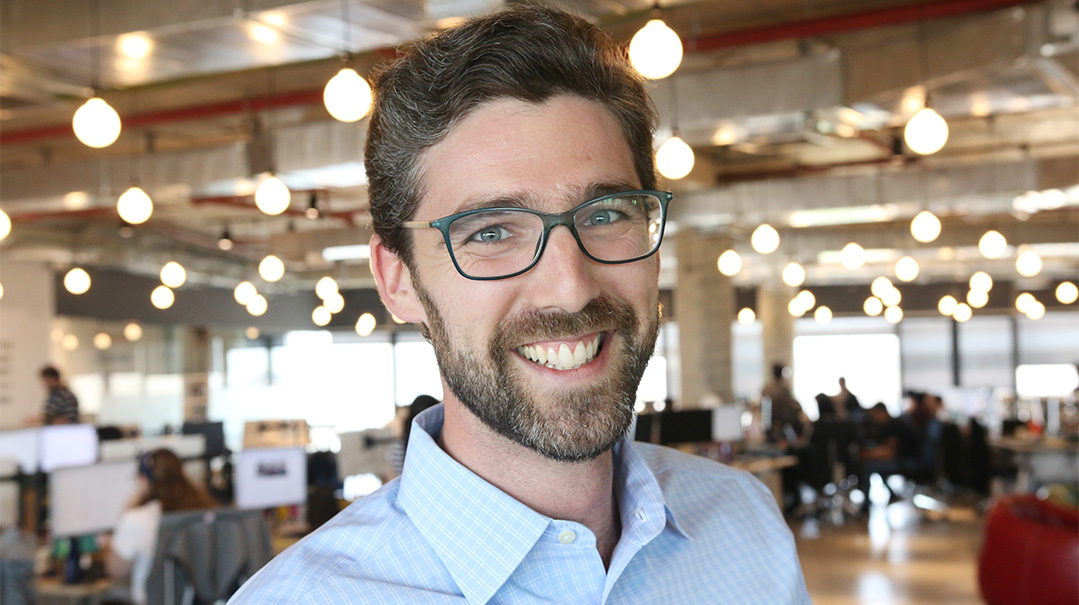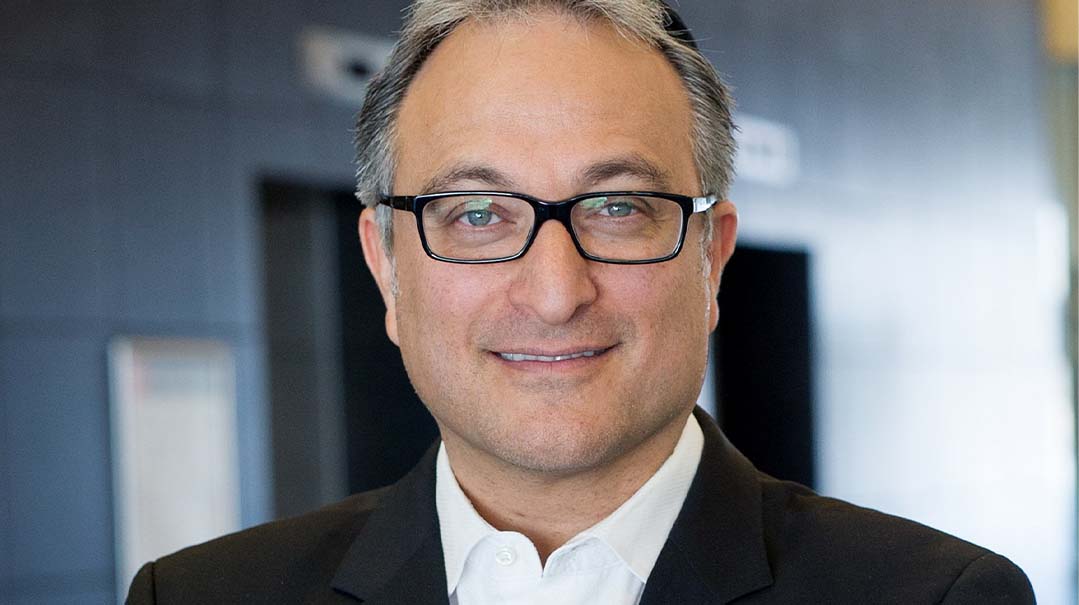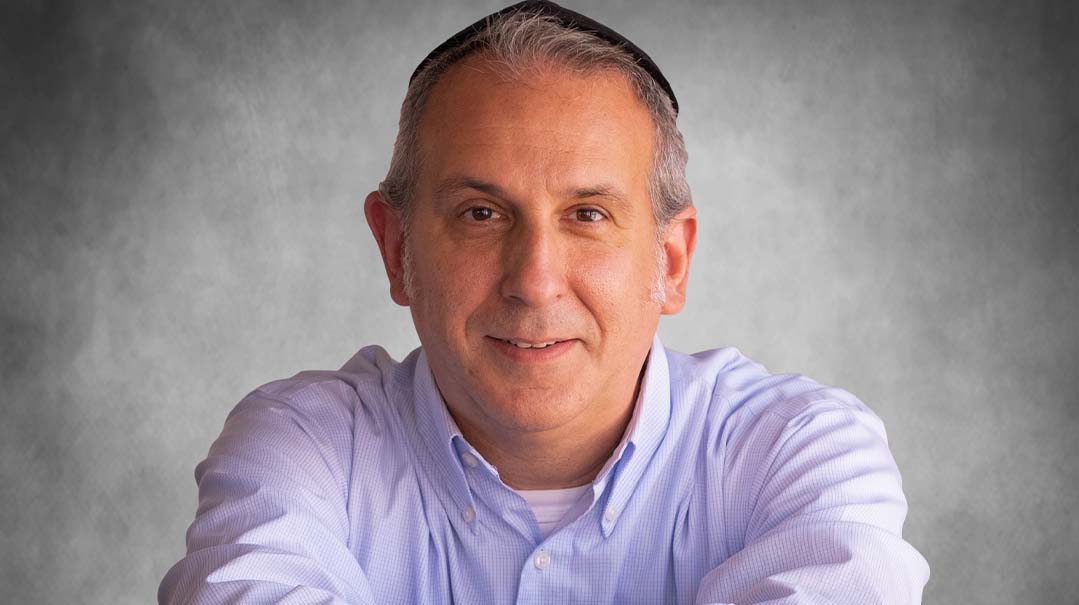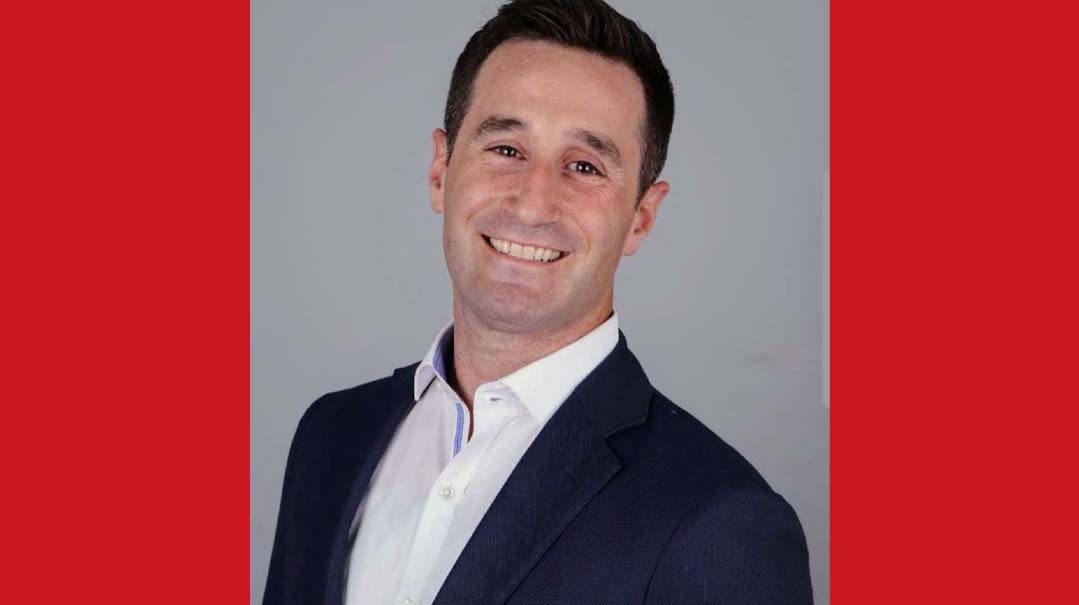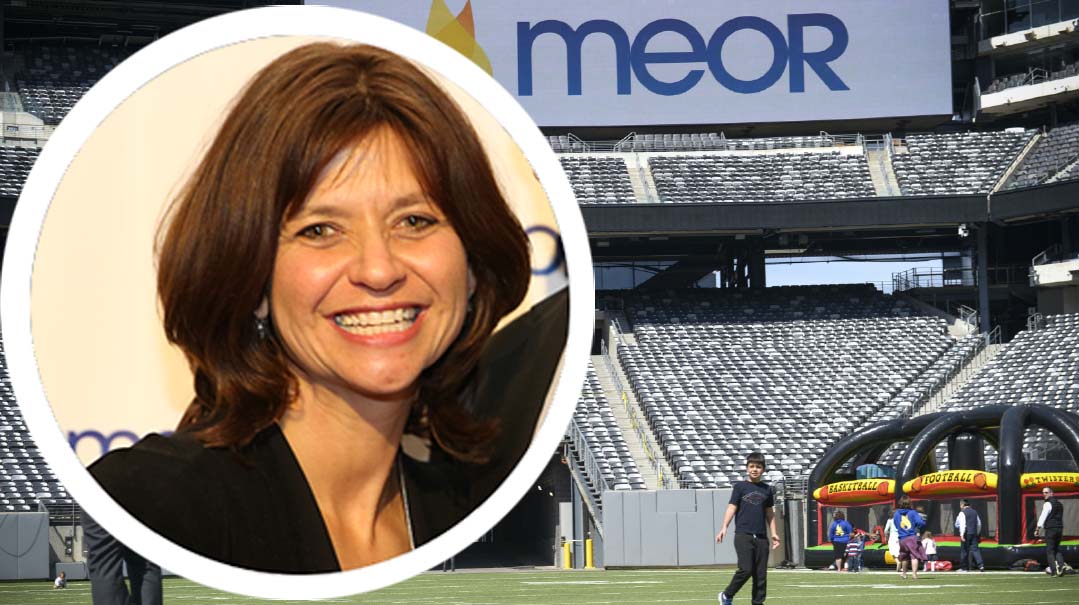Work/Life Solutions with Ari Rosenstein

Hashem decided to create you, and that the world would be incomplete without you — with all your skills, abilities, and strengths, as well as with all your flaws, weaknesses, and shortcomings
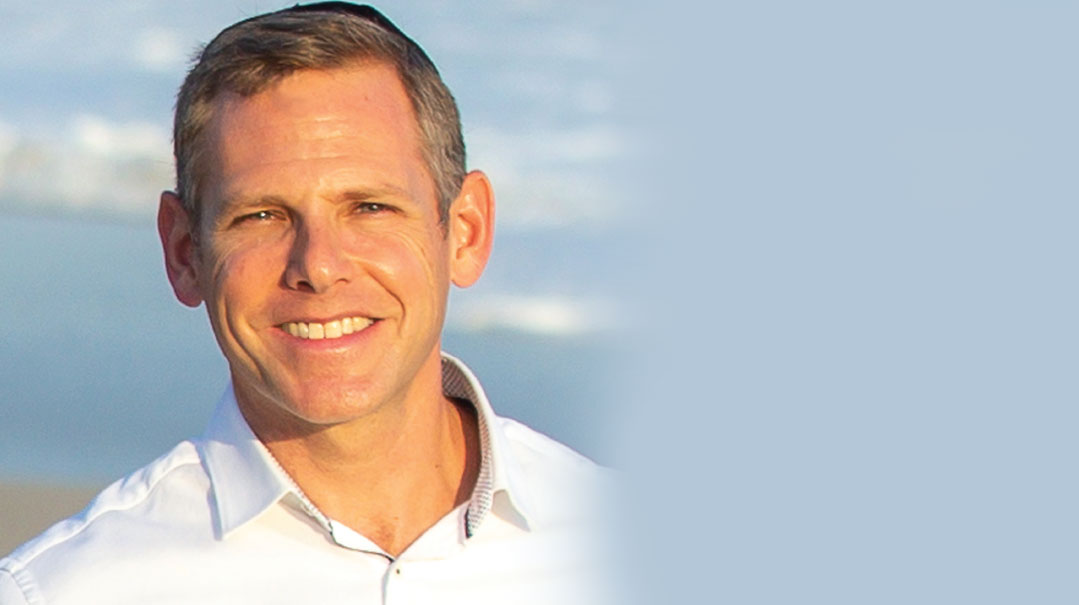
What: Ari’s responsibilities include content management for 40 skilled nursing facilities and rehabilitation center websites, social media activity, online review tracking and reputation management, press releases and corporate communications. Prior to making aliyah, he was the VP of sales and marketing for an HR company, CPE HR, Inc., and was retained as director of marketing after moving to Israel. About five years ago, he moved over to Windsor, when a more significant opportunity arose.
Where: Born and raised in Elizabeth, NJ, Ari went through, as he calls it, “the regular Modern Orthodox high school and gap year track.” At Yeshiva University, he majored in speech and communications, with a focus on public speaking. He then married Aliza (née Samson) in 1994, and relocated to her hometown of Los Angeles. Eight years and three kids later, they moved to Eretz Yisrael. They bought “on paper” in Ramat Beit Shemesh, where they still live today, and were blessed with another son and daughter.
Why: A year-and-a-half ago, Ari and I went on a snowboarding trip together, and I was so impressed with his commitment to learning, minyan, and family that I felt I had to get to know him better. And as I did, I became even more inspired by his constant positivity, passion for Eretz Yisrael, and his full, non-negotiable morning seder. When he started creating exercise videos for frum men stuck at home during COVID, I knew we had to feature him, but when I asked for an official interview, he was genuinely shocked. But his innate humility is just another part of his inspirational profile.
1 of 9 What opportunities or personalities played a role in your career?
I went to Yeshiva University and majored in speech and communications. My dream was to go into broadcast journalism or producing news documentaries. When I got married and moved to Los Angeles, I was excited about the media opportunities. I got my first job working with a television production company, only to learn the seasonal nature of the industry meant working for a season, and getting laid off until the next season. Realizing I didn’t have much of a future in the industry, my father-in-law, a successful entrepreneur and businessman, offered me a sales job in human resources. I’ve always been comfortable speaking in public and to people I don’t know, so while I had never thought of a career in sales and marketing, when my father-in-law offered me the opportunity, it wasn’t my plan, but it felt like a natural fit.
I began consulting with small businesses, “selling” human resources outsourcing solutions. I did well and continued to learn sales and management techniques, moving into a management position, and eventually became the VP of sales and marketing. I had never looked at myself as an entrepreneur, but the position offered opportunities to push and expand on new ideas and help grow the organization. As a member of the executive team, I participated in corporate decision making, I hired and trained over two dozen sales professionals (there wasn’t really a sales and marketing department when I came on board), rebranded the logo and pitch, and introduced new services and product lines to our portfolio. I started when the business had only ten employees and by the time I left, it had over 100. I loved the excitement and adrenaline of seeing how my participation made a real impact on the company. I was a respected member of the executive team and loved every minute of my job.
When our family made the decision to make aliyah eight years later, I had to make a major paradigm shift as I left the role as an executive to “just an employee.” There was obviously no way for me to continue in my executive VP role living 9,000 miles away. I continued to manage the online marketing and social media efforts of the company for another 12 years while living in Israel. In 2015 a new opportunity presented itself, so I transitioned to Windsor Healthcare as the director of communications and market research, which offered more opportunities for creativity, independence, and growth.
2 of 9 Which three character traits have played a key role in your career path?
Mental flexibility. Life is full of surprises, so while it’s critical to have a roadmap of where you want to go, it’s never a good idea to have rigid objectives or expectations. We think we have a plan, but Hashem often — usually! — has a different idea in mind for us. Mental flexibility has been an important character trait in helping me navigate my own life’s twists and turns and embrace new opportunities.
When my father-in-law offered me a sales job selling human resources consulting services to small businesses, it was nothing I had ever prepared for, but that was the door Hashem opened, so I jumped through it. Eight years later, I became the vice president of sales and marketing of the HR company, and ultimately remained with them for the next 20 years! So when things don’t quite go the way you expect, embrace the opportunity to do something you never anticipated!
Sincerity, truthfulness, and confidence in your ideas. If you strongly believe something is right — either in business, relationships, or religion — don’t let others discourage you. Always remain open to hear an alternative perspective, but don’t be afraid to share your feelings and explain why you feel the way you do. Since many people look to avoid conflict at all costs and often keep their opinions to themselves, this approach can sometimes be viewed as abrasive or confrontational. However, presented with understanding and empathy, it will actually reduce conflict in the long run.
Consistency. Almost any skill or talent can be learned and mastered through consistent effort and commitment. I knew nothing about sales when I began, but I was determined to succeed. I took sales classes, read a ton, and followed successful sales professionals. Over time, I gained the knowledge and confidence to succeed. Consistency can be applied to every human endeavor under the sun, from musical skills, to physical achievements, to new talents, to business — and to avodas Hashem. To succeed in any spiritual endeavor, there are no shortcuts. No flash-in-the-pan Yom Kippur resolutions. Long-term growth is based on a consistent, day-in-day-out commitment. It may not sound mystical or majestic, but it works.
By way of example, 15 years ago, I began learning in an amud yomi Gemara program. In contrast to daf yomi, we learn one amud (one side of a page), five days a week, with two days of review. Every day we review the previous day. About once a month we break for another review, and so on. By the time we complete the masechta, we have learned each amud anywhere from eight to twelve times. And then, we continue to cycle through previous masechtos, constantly reviewing again and again. I’m not the smartest guy and don’t have the greatest memory, but I am still learning in this program today and have thoroughly learned 19 mesechtos and about 1,400 dapim considerably well. My goal is to continue until I complete all of Shas. It’s incredible what can be accomplished with simple consistency and commitment.
3 of 9 What do you do to relax, recharge, or simply have fun? How do you make time for that, and how often?
I love to exercise. Hashem has given us a body to house a neshamah for 120 years, so we’d better take care of it. I’ve lifted weights since high school, and once I was married, I made a home gym to avoid the halachically compromised environment of professional co-ed gyms. After making aliyah, I expanded my gym and now offer free fitness classes, training, and health tips to friends. Most frum Jews maintain a very sedentary lifestyle, so I’m always eager to share my fitness knowledge for men who want to exercise and stay in shape. During COVID, while most gyms closed and people stopped coming over, I really wanted to continue providing health and fitness insights, so I created a “kosher” exercise channel called “Fit with Ari.” It’s geared to frum men of all fitness levels who are looking for tzniyusdig online home workouts. I try to upload a new exercise or workout routine once a week and it’s become a little side hobby that I have fun doing with my kids and friends.
Another big part of my life is mountain biking. Living in Beit Shemesh, we’re blessed to be surrounded by some of the most beautiful forests in Israel. Just minutes out my front door are incredible trails — and history. Many of the areas in which we ride are mentioned in Tanach (Adulam, Emek Ha’elah, Tel Azeka, Tel Socho and of course, Beit Shemesh, to name a few). There is a large group of like-minded mountain bikers who have become some of my closest friends. Having fun with friends, exercising, enjoying the outdoors, and riding through the history of Tanach — what could be better?
5 of 9 If you were granted an extra three hours per day or a spare million dollars, what would you do with that time or money?
Baruch Hashem, I have learned to use my time very efficiently. I’m blessed with maintaining a US-based job, so I have my entire morning available to learn (a three-to-four hour learning seder), my early afternoons for my family, and afternoons, evenings and nights to work. So I feel I maximize my time well. On the other hand, I’m constantly frustrated that I can’t give more tzedakah. A million dollars would go a long way to supporting so many worthy causes, schools, institutions, chesed organizations, and individuals that are in need. I would finish my son’s yeshivah building, support my brother’s seminary, show hakoras hatov to all the yeshivos and schools my family has attended over the years, and support countless valuable causes and organizations.
6 of 9 What is the most inspiring feedback you’ve ever received? Did that impact what you did next?
Approximately ten years ago, Beit Shemesh went through a particularly ugly municipal election. The mayoral candidates were mudslinging and slandering each other to such a degree that community friends and families were pulled into the machlokes. It was sickening to watch honest and sincere individuals, who probably overlapped in 90% of their beliefs, engage in such stupidity. I launched a community-wide campaign called “One Community,” focusing on what we have in common with one another, rather than on our differences. People are so entrenched in their own shul, their own rav, their same like-minded friends, that it’s often difficult to see another perspective. Over the course of a month I visited about 20 local rabbanim from a range of kehillos to explain the initiative. I invited them to be guest speakers at different shuls, organized community-wide Melaveh Malkah gatherings, Friday night onegs, hosted joint shiurim around the chagim, and produced a kuntres of divrei Torah on Pesach and Rosh Hashanah, with contributions from these 20 different shuls in the neighborhood.
The program continued for about three years, but the truth is, for me it was exhausting! While there was some strong support for the campaign, there was also a lot push-back, skepticism, and naysayers. I wasn’t necessarily seeing the fruit of my labor and had to decide to whether to continue pushing forward or to let it go. I consulted with a local rabbi mentor, and he told me something I will never forget: He said that Hashem gives special kochos to individuals — whether it be teaching, chesed, entertainment, musical, public speaking, or physical strength — and it is our responsibility to take those skills and talents, and to use them l’sheim Shamayim. Whatever our strengths are, make use of them, and leave the results to Hashem. He said I had public speaking skills, was comfortable engaging people with different hashkafos, and was familiar with the lay of the land, which in turn made me obligated to continue working for the community in one way or another. While the achdus initiative eventually came to an end, I did take those wise words and applied them to a new initiative.
In 2013 I was approached by Rav Chaim Zev Malinowitz ztz”l, an outstanding community rav and posek, and Rav Simcha Sussman, a local mechanech, to assist in opening a new yeshivah high school in the neighborhood. What excited me was that the foundation of the school was based on a similar concept, that of “success breeds success.” For a school, that means that if a boy was successful in one area of life, that positive self-esteem will carry into all other areas, including Torah study. This unique yeshivah, Yeshiva Arzei Levanon, offered a solid yeshivah schedule, but incorporated life skill electives into the curriculum — music, woodworking, sports, and computers, to name a few — and boys were free to join whichever ones they wanted. Just as my mentor had encouraged me, we were encouraging these boys to find their passion, their skill, their unique talents, and to embrace and develop them l’sheim Shamayim, while shteiging in Torah learning. It was a great success and continues to operate today.
7 or 9 If you were asked to deliver a TED Talk that would be watched by 50 million people, what topic would you choose to speak about? Why?
I’m passionate about believing in yourself, recognizing your self-worth, and having positive self-esteem. Every human being was created in the image of Hashem. What that means is that Hashem decided to create you, and that the world would be incomplete without you — with all your skills, abilities, and strengths, as well as with all your flaws, weaknesses, and shortcomings. And that’s okay, because that is who you are. All we are tasked to do in our life is try our best with all the physical and environmental factors Hashem has given us. And if we do, we should never be depressed about not achieving what we hoped or wished we would, nor should we be haughty or arrogant about achieving what we were able and expected to accomplish.
8 of 9 Can you share a time when you had to navigate the tension between your deepest values and the business world?
Life in Los Angeles, for the eight years we lived there, was as close to living in paradise as one could imagine. We were happily married with a beautiful family, the weather was perfect all year round, the people were polite and considerate, there was a thriving Jewish community, we had a close-knit circle of friends, we lived near my in-laws, and I had an incredible job working in the family business with a clear upward trajectory — not to mention two cars and a very comfortable suburban four-bedroom ranch house. But from the moment my wife and I met, we were both committed to one day make aliyah, and eight years is a long time to settle into a comfortable life groove, in sunny L.A. no less. When our oldest daughter turned six and was soon to enter first grade, my wife and I knew the moment of truth was fast approaching. If we remained in L.A. much longer, the clutches of the warm sun and sea would never let us out. Plus, it was pretty clear that I would continue to climb the corporate ladder, perhaps even becoming CEO one day, at which point we would likely never leave.
So, in 2002, we made the heart-wrenching decision to leave our life, job, family, and friends behind, and to move to Israel. As expected, we were met with incredulousness as people could not believe I was leaving a serious job for a pay cut, comfortable weather for the desert, cultured people for brash Israelis, and friends and community for the unknown. It was particularly difficult for my wife, who grew up in L.A., to leave her childhood home and parents and move to a country we knew would be a greater challenge than anything we’d experienced.
On a professional level, I continued to manage the online marketing and social media efforts of the company, but it took years for me to really understand I was no longer an integral part of the organization’s decision-making process. I had to let go of that entrepreneurial “high” and recognize that I would most likely never have that opportunity again in Israel. And that was okay! I came to understand that it was time to re-prioritize my life, and that Hashem had orchestrated those years in L.A. to enable our family to make aliyah. Priorities now shifted to growing spiritually, learning more, investing in physical health, and focusing on the family. If that entailed collecting a regular monthly paycheck without the executive adrenaline rush, so be it!
And now, 18 years later, we cannot thank Hashem enough for giving us the strength to stand by our sacrifice and commitment to live for a higher meaning in life. We have never once looked back. The corporate ladder, nice weather, and fancy cars cannot hold a candle to the deep, meaningful way of life we have here. And the most incredible thing about Israel are the friends and relationships we’ve formed. I’m constantly awed by the strength, depth, kindness, commitment, and passion of everyone we know.
(Originally featured in Mishpacha, Issue 836)
Oops! We could not locate your form.



